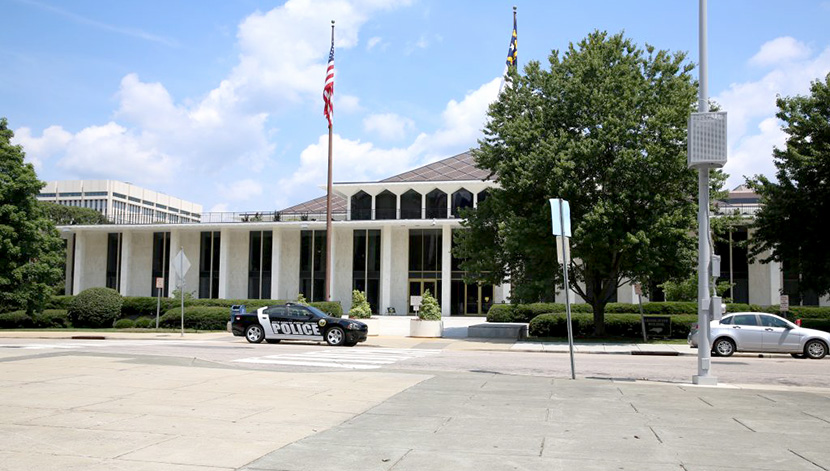Publisher's note: This post appears here courtesy of the Carolina Journal, and written by Brooke Conrad.

It's time for a break from "summer camp."
Rep. Chuck McGrady, R-Henderson, acknowledged as much Wednesday, Sept. 11, saying the level of trust between N.C. Republicans and Democrats is as "brittle" as he has ever seen.
That's going to have important implications for redistricting reform. After the General Assembly passes
its court-ordered maps, lawmakers may have to take a break before deliberating over redistricting legislation establishing a process for future elections.
"You've got to put the kids in timeout, let things cool down a bit, and then let's come back and see if we can work things through," McGrady said.
The General Assembly introduced several redistricting bills earlier this year, two of which amassed more than 60 bipartisan co-sponsors.
House Bill 69 would create a nonpartisan redistricting commission of 11 members, who would craft election maps for the Senate, House, and U.S. congressional districts.
House Bill 140, also referred to as the FAIR Act, would create a constitutional amendment forbidding the use of partisan data in mapmaking. It also requires legislative staff to draw the maps, limited by rules stated in
Stephenson v. Bartlett, a 2002 redistricting case decided by the N.C. Supreme Court.
With either measure, the General Assembly would accept or reject district maps.
Passing an amendment would make it more difficult for the General Assembly to change the mapmaking criteria in future sessions, said McGrady, who serves as a primary sponsor on both bills and is serving his final term in the House. It also would be more difficult to pass, requiring majority support from at least 60% of those present and voting in the House and Senate. In contrast, a statute mandating an independent commission would require only a simple majority.
Before Wednesday, McGrady suggested lawmakers could begin considering the legislation as soon as October. But that looks less likely now after Republicans incited Democratic outrage Wednesday morning, holding a surprise vote on a long-contested override of the budget when most Democrats were absent.
Holder opposes constitutional amendment
Former Attorney General Eric Holder, who now chairs the National Democratic Redistricting Committee, denounced the FAIR Act last week, saying it would do "little to improve the status quo."
"I have a great deal of reservations about North Carolina's H.B. 140 and believe that the North Carolina legislature should take a harder look at the details before moving forward with it," Holder said in a press release.
The announcement hasn't deterred Rep. Robert Reives, D-Chatham, from continuing to support the legislation, in addition to the six other anti-gerrymandering bills.
"My position has not changed," Reives said.
"I respect Holder and appreciate what his organization is trying to do. I'm thankful the bill helps us engage in conversation, and I hope at some point in time, we are going to get large bipartisan support."
The two proposals that received wide bipartisan support aren't mutually exclusive.
"These things have a way of morphing," McGrady said.
"I'm just trying to give my leadership some options."
Why it matters
The legislation is essential to halting the decades-long cycle of lawsuits stretching back to the 1980s. That's about 45 judicial interventions in total, said Jane Pinsky, director of the N.C. Coalition for Lobbying & Government Reform, which includes the most recent lawsuit plaintiff Common Cause. She estimates the past four series of lawsuits alone have cost taxpayers $30 million.
A nonpartisan and transparent process is critical now more than ever, Pinsky said. Ten or 20 years ago, mapmakers could look only at voter registration and history. Today, with more sophisticated computers and readily-accessible, private information about voters, it's a much different story.
"They could know which kind of frequent buyer program at a grocery store you belong to, what airline you fly, whether you're on Facebook or Instagram, probably what kind of car you drive," Pinsky said.
Making the process open to the public, per the court order, would help with transparency, she said. Not only can the public watch, but they can also make suggestions based on their knowledge of their district's demographics.
"It might be that there's an ethnic community that's both inside and external the city limits, and to best have their view represented by a legislator, maybe you need to keep that community together," she said.
Removing politics from politics
What will make this process different is the lack of surgical precision, said Rep. Grier Martin, D-Wake, who supports redistricting reform. Map-drawing becomes a different game when lawmakers can use computer algorithms to manufacture the lines with pinpoint accuracy.
Even if some lawmakers try to covertly gerrymander the lines, it would be easy to tell by the number of split precincts, Martin said. The ruling requires lawmakers to try to keep the number of split precincts to a minimum.
"I think all evidence shows North Carolina is pretty much split down the middle and can pretty much swing either way," Martin said.
"And I expect fair maps will resemble that."
However it's done, the litigation has to stop, says Robert Hunter, a plaintiff attorney for a series of redistricting cases in the early 2000s.
"These cases are very destabilizing to the political order," he said.
"People try to change things through litigation if they feel the structure of election is unfair."
In the end, it's about removing politics from an inherently political process, Martin said, so it's not going to be perfect.
"The perfect reform would completely remove partisanship from drawing districts," Martin said.
"With political districts, we'll never get that. But I want to remove politics as much as possible from the district-drawing process."

